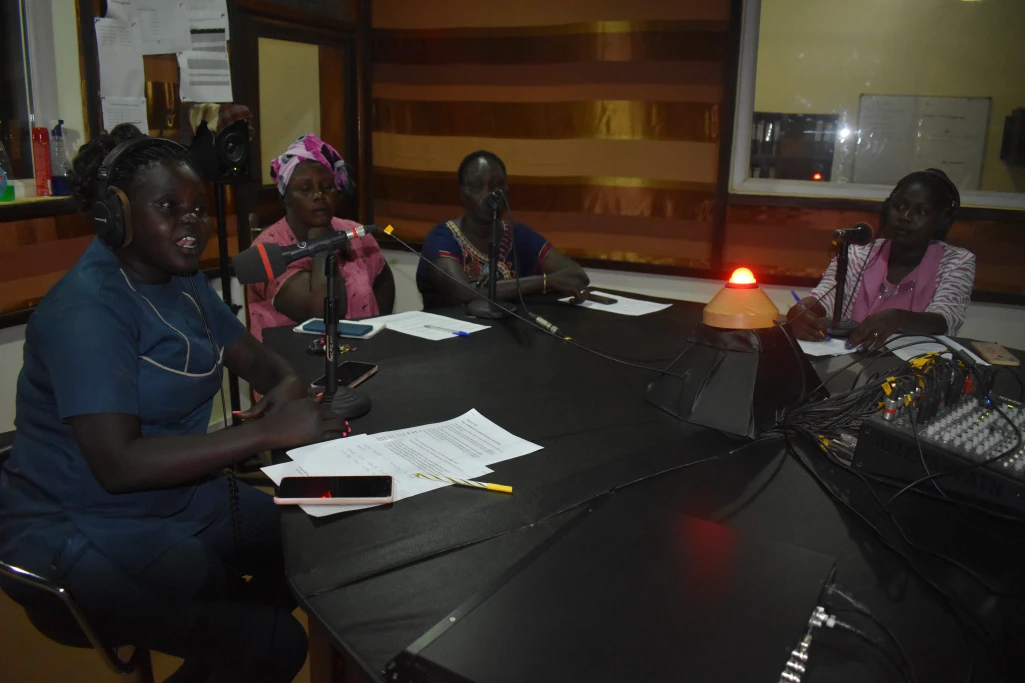
Today, Tuesday, March 8, is the International Women’s Day. The 2023 theme is: “The theme for this year’s International Women’s Day is “DigitALL: Innovation and technology for gender equality.”
The theme is aimed at recognizing and celebrating the women and girls who are “championing the advancement of transformative technology and digital education”, according to the United Nations.
It is also geared towards examining the impact of digital gender gap on economic and social inequalities while highlighting the need to protect the rights of women in digital spaces.
To mark the day, The Radio Community, through its radio stations, hosted on live shows women making extraordinary contributions in their communities. These include a women’s rights advocate, protection officer, humanitarian worker, electrician, and gender activist.
As women struggle to break the glass ceilings, some say it takes commitment, focus, and courage to do what they do in their communities today.
Apuot Santo Ayang, is one of the few South Sudanese women who do “man’s job”. She is a professional electrician based in Northern Bahr el Ghazal State. She currently works for Medicines Sans Frontiers.
“Most people assume that I have no good educational backgrounds, with some questioning why I decided to be an electrician – profession for for men,” she told Akol Yam FM.
The celebration of the day this year also highlights the gender-based violence that many are subjected to online.
In South Sudan, several reports on human rights suggest that violence against women and in particular, GBV is prevalent and underreported.
Survivors often will not report or seek redress due to lack of legal knowledge on justice options and financial means.
Awek Deng Kon, an official at the Ministry of Gender, Child and Social Welfare, revealed that domestic violence against women is rampant.
“But some women fear to post it on social media due threats of more bodily harm from their husbands,” she told Mayardit FM.
For her part, Achai Deng Kuac, a human rights officer with UNMISS, who investigates issues related to rape, abuses, violence, and unlawful detention.
Achai, who was married off shortly after completing high school, encouraged girls and women to acquire education to break the gender gap.
“It was not easy to go back to school, because of so many responsibilities at home. So, I decided to do online learning. I’m now about to complete my bachelor’s degree in Law while I’m still working to support my family,” she said on the Akol Yam FM.
A gender activist, Grace Akon, told Mingkaman FM that technology, particularly social media, is used to disgrace women and girls who have differing views on societal issues.
“Whenever your husband or boyfriend gets access to your phone and finds photos and videos that are not supposed to be shared on social media, they take them and when you have any disagreement, they start sharing those photos and videos publicly to embarrass and shame you as a woman,” Akon said.
In conclusion, Ario Sunday Protection officer at South Sudan Red Cross in Kapoeta said women and girls who are helping bring about change should be be recognized publicly.
“We need to recognize them to remind the world of their strengths and encourage women and girls to acquire computers skills – skills that can expose them to new technology,” she said on Singaita FM show.